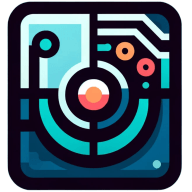5 Programming Languages for Versatility and Long-Term Prospects
Imagine a world where programmers are restricted to a single language for their entire career. To shed light on this intriguing scenario, insights have been gathered from a CEO and a Software Engineer Intern. The first expert suggests choosing Python for its unmatched versatility, while the final perspective emphasizes how Python enhances teaching and AI communication. Discover a total of five valuable insights from industry professionals who have chosen Python as their go-to language for its balanced power, simplicity, and long-term relevance.
- Choose Python for Unmatched Versatility
- Python Balances Power and Simplicity
- Python Powers FusionAuth's Innovation
- Python Ensures Long-Term Relevance
- Python Enhances Teaching and AI Communication
Choose Python for Unmatched Versatility
If I could only use one programming language for the rest of my career, I would choose Python. Its versatility is unmatched, as it can be applied to various domains, including web development, data analysis, artificial intelligence, machine learning, automation, and scientific computing. Python's simple and readable syntax allows for quick learning and efficient coding, making it an excellent choice for both beginners and seasoned professionals.
Additionally, Python boasts a robust ecosystem with an extensive collection of libraries and frameworks. For web development, frameworks like Django and Flask streamline the process of building powerful applications. In data science and AI, libraries such as NumPy, pandas, and TensorFlow enable sophisticated data manipulation and modeling. The community support is also tremendous, with a wealth of resources, tutorials, and forums available for learners and developers alike.
Long-term prospects for Python remain strong, as it continues to grow in popularity across industries. Its widespread adoption by tech giants and startups alike ensures that there will always be demand for Python developers. Moreover, with the increasing focus on data-driven decision-making and AI technologies, Python is positioned to play a crucial role in shaping the future of technology. In summary, the versatility, extensive ecosystem, and promising long-term prospects make Python my programming language of choice for a successful career.
Python Balances Power and Simplicity
If I had to choose only one programming language for the rest of my career, I would go with Python. As a CPA and software engineer, Python's versatility and readability are ideal for developing both business and AI applications.
Python is a general-purpose language with a simple syntax, making it easy to pick up and read. This has allowed me to prototype software quickly when working with clients. The large collection of open-source libraries enables everything from web and mobile development to machine learning and data analysis.
For AI and automation, Python is a leader in the field. I've used it to build chatbots, optimize pricing algorithms, and generate financial forecasts. The flexibility and scalability of Python ensure it will remain a major player for years to come. Overall, Python offers the best combination of power and simplicity for tackling diverse, complex problems. This balance of capabilities makes it my top choice for long-term success.
Python Powers FusionAuth's Innovation
If I could only use one programming language for the rest of my career, it would be Python. As CEO of FusionAuth, a customer-authentication platform, versatility and ecosystem are crucial.
We built FusionAuth using Python because of its simplicity and readability. This allows us to prototype and scale features quickly based on customer feedback. The open-source libraries enable everything from microservices to machine learning—I’ve used Python to optimize our pricing algorithms and customer retention models.
Python’s flexibility ensures it will drive innovation for years to come. We rely on it to solve complex problems and power our platform behind the scenes. While trendier languages come and go, Python’s balance of power and simplicity make it the best choice for long-term success.
Python Ensures Long-Term Relevance
If I had to choose just one programming language for the rest of my career, I'd definitely pick Python. It's incredibly versatile—I can use it for web development, data analysis, AI projects, or even automating everyday tasks. The community is huge and always active, so there are tons of libraries and frameworks that make my work easier. I love how readable and straightforward the code is; it makes collaborating with others so much smoother. Plus, with Python being adopted across so many industries and its growing importance in new technologies, I feel confident it'll stay relevant for a long time.

Python Enhances Teaching and AI Communication
If I could only use one programming language for the rest of my career, I would choose Python. Its simplicity and readability make it excellent for teaching programming fundamentals. Python's extensive ecosystem supports everything from web development and data analysis to artificial intelligence. Since most AI platforms use Python, understanding it allows for better communication with AI and Large Language Models (LLMs). Learning design concepts, like SOLID and DRY, in Python enhances code quality and helps in crafting clearer instructions for AI models. Python's versatility and strong community support ensure it will remain relevant for the long-term.





